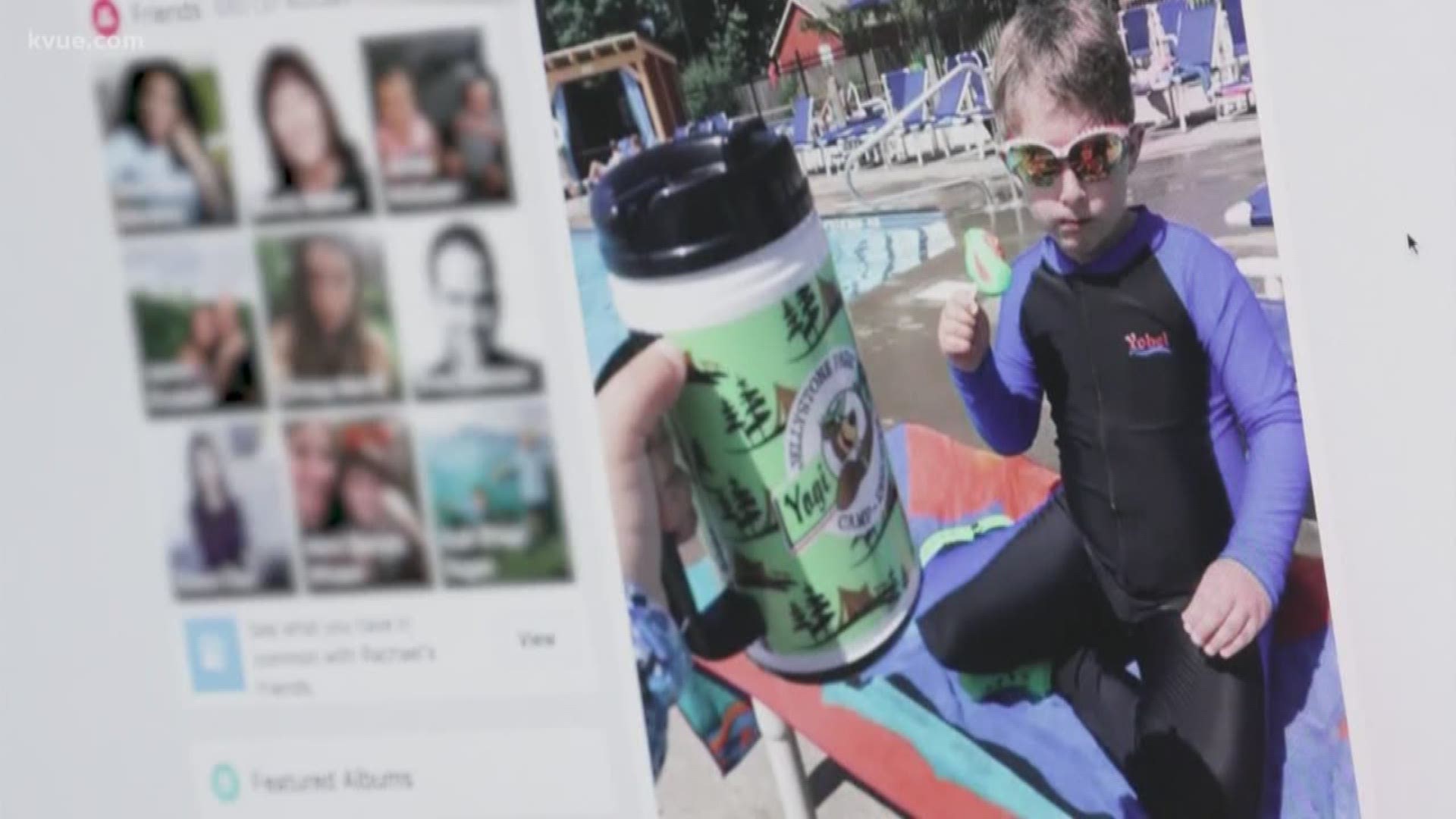For many, checking social media has become part of the day to day routine.
Between Facebook, Twitter, Instagram, Snapchat, Reddit, Tumblr and LinkedIn, there’s a social networking site or app for almost every hobby or occasion.
But for every long-lost friend you reconnected with or great memory that is brought back to your attention, there’s a cringe-y pic or bad memory lurking out there too.
For some, the worst things social media sites have to offer may be a high school blunder or bad haircut choice resurfacing.
The "dark side" of social media explained
For others, the negatives from social media can be much worse.
“It can entail anything: from cyberbullying to digital drama, to revenge pornography, to the dark web, to privacy concerns,” University of Texas at Austin Professor Angeline Close Scheinbaum said. “The dark side of social media is just a general term that explains unintended consequences.”
When it comes to the dark side of social media sites, Dr. Scheinbaum quite literally wrote the book.
Titled “The Dark Side of Social Media: A Consumer Psychology Perspective,” her book is a compilation of research and information from multiple authors.
“To an extent, we don’t want to see the dark side of communications,” she said. “This is not the fault of social media. These problems have existed before social media, but it’s a newer, broader platform that exposes these problems and exposes digital drama.”
Dr. Scheinbaum said on social platforms, new questions come into the picture.
“Why does the consumer or someone need six, seven, eight social media platforms? At what point do they become a burden for someone?” she said.
She said at the end of the day, the constant drama and need to check notifications can leave users exhausted and that sometimes the digital elements are “almost worse.”
Bullying in the digital age
“Think about what bullying used to happen in maybe elementary or middle school,” she said. “It would maybe be one on one, but it’s something that would happen there and only there. With cyberbullying, this happens at a broader level and people are always exposed.”
And that’s a frightening reality when you look at some of the numbers. According to a 2016 study by the government agency, “Stop Bullying,” nearly 17 percent of high school students had been cyber-bullied.
And a study by the “Cyber Bullying Research Center,” found that more than 22 percent of 18- to 30-year-olds had been victims of revenge porn.
Dr. Scheinbaum said the reality of the dark elements of social media is real and many people don’t notice them.
“We don't want to see the dark side of digital drama. We don't want to think about these things until it happens to us,” she said. “You might not be interested in trolls, and some of these other things that are happening like cyber-bullying until we hear people becoming victims of them.”
And the effects go outside the digital realm too.
The effect on your body
The National Safety Council found that 97 percent of U.S. workers have at least one of the leading risk factors for fatigue.
Factors that licensed psychotherapist Brooke Peplinski sees often in her patients.
“Almost every day,” Peplinski said. “Someone questioning ‘Is something wrong with me? What's going on?’”
She said that a lot of patients at Baylor Scott and White will present physical symptoms in response to digital stresses.
“Backaches, neck aches, tension in their body, difficulty concentrating -- you know, all these symptoms are stress-related,” she said. “It's just from exhaustion -- overstimulating your brain and doing something all the time.”
The constant screen time and the often drama-filled content on the screens can have physical and mental consequences on their own. When combined, “It creates a lot of anxiety,” Peplinksi said. “Every day, I see people questioning themselves about ‘Why am I not sleeping? Why is my appetite always changing?’ And it's small things that stem and they can turn into bigger things like depression and anxiety and other medical conditions.”
The solution
Now here’s the part where readers may be asking ‘So what do we do?’ Unfortunately, there aren’t simple solutions, but there are definite steps that can ease the stress and consequences.
Both Peplinski and Dr. Scheinbaum wanted to clarify that they actually enjoy social media and think others can too.
“We all need to be more mindful about social media,” Dr. Scheinbaum said. “It helps to think of social media as a dinner table conversation. Is this something you would say at a dinner conversation in good company? If the answer is no, maybe rethink this because it could be long-lasting and could be taken out of context.”
Both experts suggested taking periodic breaks from social sites to give yourself a chance to escape drama and screen-fatigue.
Dr. Scheinbaum also suggested taking a close look at your social media presence. Look into old accounts, and see how your digital presence exists compared to your real life.
Peplinksi added that a period of mentally disconnecting from social media can also be rewarding.
“People like challenges right?” she said. “Try something for three days ... It’s okay to be bored. Do nothing. Be still and be disconnected. So many people get far away from themselves and that’s what I feel like is a danger. If you’re disconnected from yourself for so long and you’re just running on autopilot, you’re not mindful.”

